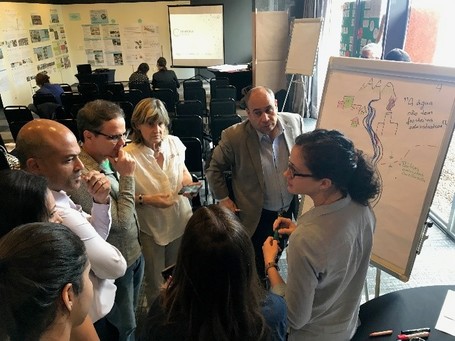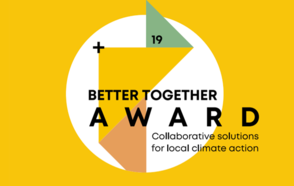
More than a month’s worth of rain fell in just 3 hours in the city of Salvador, Brazil, on 26 November, leading to large flooding and the evacuation of 300 people. However, thanks in large part to the recent work of the city in risk reduction, landslide containment projects, and early warning systems, no casualties were reported.
On the same day, representatives from 17 cities and regions of Latin America and Germany, including from the city of Salvador, were gathering in the city of Niteroi, Brazil, to exchange experiences and knowledge on the topic of climate resilience and urban development. The lessons learned by cities through their efforts to respond to and prevent emergencies, and mitigate and manage risk, is similar in many cities, and together make up a great source of learning and good practices.
Introducing the vulnerability to climate change of his city, built between the sea and the mountains, the mayor of Niteroi, Mr. Rodrigo Neves, welcomed participants by highlighting the important support he has had from his planning, environment and civil defense secretaries. Together, they have worked in the management of risk and the development of the city’s strategic plan, eliminating casualties from landslides in the city in the last few years. As such, the mayor noted the importance of building the capacity of city leaders so they can overcome difficult situations, and transform challenges in opportunities. He invited participants to continue collaborating and participating in decentralized cooperation programs.
Throughout the three days of the workshop, from 26 to 28 of November, participants discussed the importance of strengthening urban resilience in the face of extreme climate events, and how to better manage the risks (and opportunities) that a changing climate can bring. The event was organized by Connective Cities, with the support of the German Agency for International Cooperation (GIZ), Engagement-Global, the German Association of Cities, the Brazilian Front of Mayors (FNP), and UCLG Learning.
The diversity of practices and challenges discussed during the three-day event were as diverse as the cities and regions represented: Curitiba, Itaborai, Niteroi, Ribeirao Preto, Rio Branco and Salvador (Brazil), Dortmund and Stuttgart (Germany), Concordia and Paraná (Argentina), Monteria and Risaralda (Colombia), Portoviejo and Riobamba (Ecuador), Mexico City, Toluca and the touristic regions of Riviera Maya, Riviera Nayarit-Jalisco and San Miguel de Allende (Mexico). Throughout the discussions, it was clear the important role that local governments have, working together with local communities and stakeholders not only to mitigate climate change, but to adapt and strengthen the resilience to the impacts it is already having.
The good practices and strategies discussed during the event will be compiled and presented in the next UCLG Peer Learning Note on climate resilience and urban development. They will also feed into the ongoing work being done together with UNDRR and UN-Habitat to develop a learning module on the localization of the Sendai Framework for Disaster Risk Reduction and urban resilience, which will be launched in 2020.












